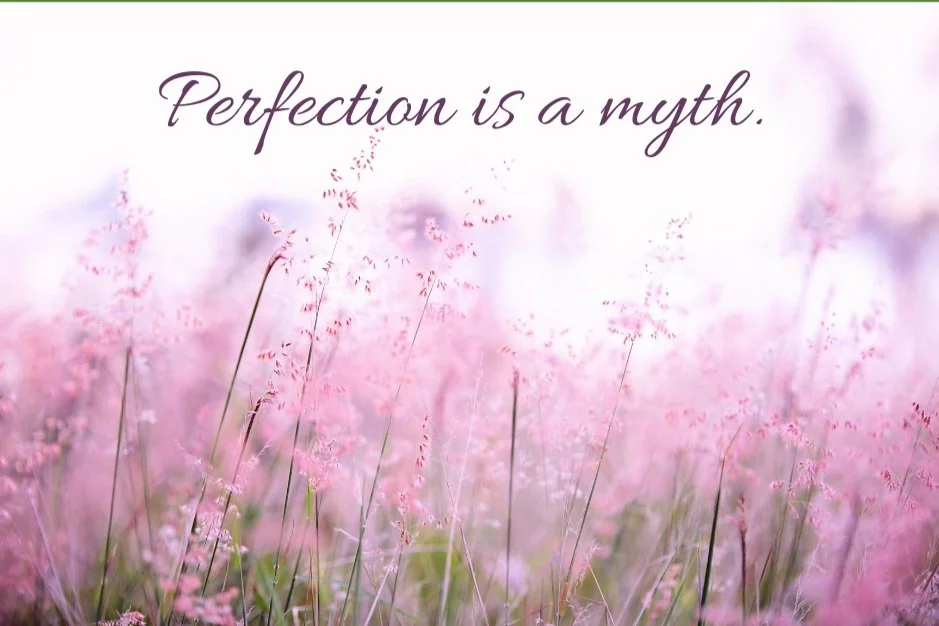Transforming Perfectionism With Limits
Ivy Griffin
Do you believe you should be able to please everyone all the time? Do you become angry with yourself or intensely embarrassed when you make mistakes? You might have some perfectionistic tendencies. Where does perfectionism come from? And how do we begin to transform our perfectionism into discernment, self-care, and respect?
Perfectionism tends to exist in environments where there is a high amount of shame around shortcomings and mistakes. This may be reflected in the dominant culture by media that promotes unrealistic, unattainable ideals about appearance, behavior, and even emotions. Examples include highly objectified images of supposedly flawless bodies, being constantly outgoing and friendly or clever, or being constantly happy and relaxed. These unrealistic ideals may also be perpetuated in our families when we witness our parents pursuing them or we see our family is stressed and struggling and we feel the best thing we can do is achieve or entertain them to relieve their stress or not take up too much space. We can also absorb perfectionistic ideals from the wider culture when they’re not adequately challenged in the environment we grow up in.
How do we change? Naturally, if we tend towards perfectionism, we can get that way about change as well – “I have to change easily, quickly, and significantly!” But shifting away from perfectionism includes challenging this type of thinking. To get you started, here are some perfectionistic beliefs we can start to recognize in ourselves, steps toward change, and mantras to practice that will support you during the change process.
Perfectionistic belief #1: Limits mean I'm a lesser person. The belief that we are somehow less worthy because we have limitations, is often at the core of our drive to be perfect. The more we strive, the more we reinforce this belief. As you start to honor your limits by doing things like maintaining a sustainable work schedule or excusing yourself when you need a break or rest, remind yourself, “Honoring my limits protects and preserves the energy I give to myself and others.”
Perfectionistic belief #2: I'm depriving others by setting limits. This one may come up for those of us who frequently saw the people in our lives struggling to care for themselves. We may witness others being constantly stressed, emotionally unavailable, or in crisis. They might ask directly or pull on our heartstrings to help them and we start to equate this with our personal worth and purpose. But what are we giving to others when we’re depleted and spread thin? When we’re selective about how and when we use our energy, we show deep respect to ourselves and others. As we practice telling them things like “After I rest, I can give you my full attention” or “I’m so sorry you’re struggling, I truly hope things get better” we can say to ourselves, “I respect myself and others when I practice discernment with how and when I choose to use my energy.”
Perfectionistic belief #3: I should be able to do anything anyone else can do. This belief is common when we’re shamed or when love and attention are withdrawn as a result of us not having the same talents as others. This gives us the false impression that having different skill sets means we’re lesser. We may experience envy, resentment, and disappointment frequently as we compare ourselves to others. But our differences allow us to throw ourselves into what we enjoy and excel at, leaving others to do the same. During the change process, remind yourself, “I honor myself and others when I practice acceptance and appreciation for the differences between my gifts and theirs.”
As I said before, it’s not uncommon for people to get perfectionistic about the change process so it may be beneficial to have help along the way. A therapist can offer perspective, help increase our self-awareness, and help us to navigate challenges. If you’re ready to transform your perfectionism, please reach out.
Warmly,
Ileana Arganda-Stevens, LMFT#129032
Therapist and Program Manager
https://thrivetherapyandcounseling.com/ileana-arganda
https://thrivetherapyandcounseling.com/new-clients
